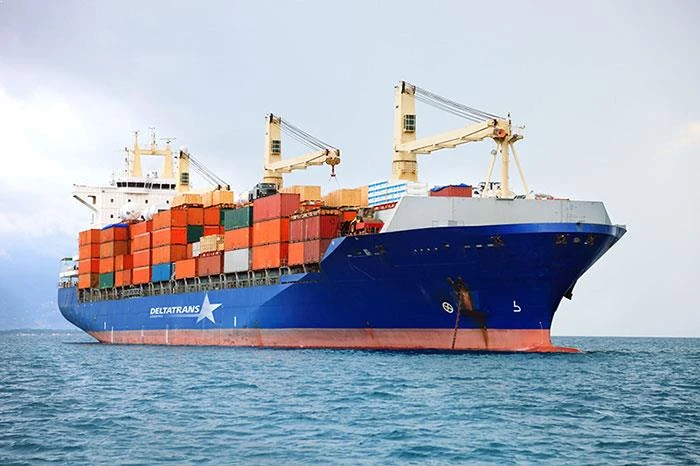Non-Vessel Operating Common Carrier vs Freight Forwarder: What Are the Differences?
The global transportation of goods in the business landscape continues to pave the way to the development of the economy. Whilst breakbulk and international shipping do have complex logistics processes, the global logistics market is still forecasted to skyrocket to $18.69 billion in 2026.
Moreover, international shipping involves various services for a single transaction, including the Non-Vessel Operating Common Carrier (NVOCC) and Freight Forwarder, which are commonly mistaken to be similar in functions.
What Are NVOCCs?
NVOCC is an ocean carrier that provides transportation services to shippers without operating ships or its own vessels. Instead, NVOCC purchases space from vessel-operating common carriers and resells it to shippers. Further, NVOCC serves as the middleman in logistic services, particularly in transferring cargo.
Roles of NVOCCs
NVOCCs, though offering cost-effective shipping and low freight rates, offer varying functions in shipping:
Cargo Consolidation
NVOCC delivers and receives cargo as carriers. They collect shipments from various sources to optimize container space and produce cost-efficient loads and flexible shipping options.
Documents Facilitator
NVOCCs process documents. They prepare the house bill of lading and paperwork concerning booking space for shipping lines and regulations. NVOCCs follow regulatory measures to ensure the legality of goods transportation and streamline the movement of commodities.
Rate Management
NVOCC’s other role is arranging payments for essential charges. Their company has access to international shipping routes in the global market. They set freight rates and shipping costs for shippers.
What is a Freight Forwarder?
Meanwhile, freight forwarders are experts and multi-functional operators. They facilitate the seamless movement of cargo, whether through rail, road, air, or ocean transportation. However, freight forwarders are the agents to shippers, only functions to arrange the transaction, not the ones to move the cargo.
Functions of Freight Forwarder
With the task of arranging and planning the logistics, freight forwarders have their primary roles in transportation services:
Logistics Planning
A freight forwarder plans the most cost-efficient route for shipping goods. They arrange customs clearance and cargo movements for local and international destinations and prepare documents for shipment activities. They also manage cargo consolidation by applying freight forwarding trends.
Customs Processing
Freight forwarders handle the paperwork when dealing with customs. They act as jacks of all trades, ensuring compliance with regulations and seamless shipping of international trade through proper cargo insurance and inventory management.
Handling and Negotiating of Contracts
On behalf of the exporters, they are the ones negotiating contracts with the carriers to ensure cost-efficient shipping deals. Freight forwarders can also issue the house bill of lading and facilitate their freight contract.
Main Differences Between NVOCC and Freight Forwarder
As service providers for shipping logistics, there are differences between NVOCCs and Freight Forwarders:
Relationship With Shippers
NVOCC serves as an intermediary between the shipper and vessel operator to conduct transport services. Meanwhile, freight forwarders collaborate directly with shippers to make decisions and plan the logistics process.
Primary Purpose
The exporters or importers defined NVOCC as a carrier to the shipper that works independently through third-party companies to support them. Besides, freight forwarders act as agents to shippers; they may also function as NVOCC’s agents.
Mode of Transportation
NVOCCs are mainly assigned for ocean transportation, which differs from freight forwarders, as the latter can offer different modes of freight transportation, whether through air, land, or ocean, for the buyers to monitor and control the commodities.
NVOCCs vs. Freight Forwarder: Choosing the Best Service Provider
To select the best service provider for transporting goods, whether it is an NVOCC or international freight forwarding company, it is essential to consider the following:
Level Of Service
Selecting between NVOCC and freight forwarder depends on the shipper’s needed service. For instance, there is only a need to book the transfer of goods in an ocean vessel, so NVOCC is an excellent choice for cost efficiency. Therefore, if a shipper needs guidance to identify the best route and rate for shipment as well, it is better to select a freight forwarder.
Best Freight Rates
When it comes to freight rates, it is recommended to choose NVOCC when there is a money constraint, as a shipper could save more fees. Compared to a freight forwarder, this agent will assist with the entire logistics process and services, which could be costly.
Conclusion
Understanding the concept of different logistics services like NVOCC and freight forwarders is vital, especially when a shipper looks forward to streamlined commodity shipping. Both services may differ in crucial aspects but can ensure smooth and cost-efficient customs brokerage service for a positive logistics experience.
If you are looking for relevant services that offer freight forwarding and worldwide logistics, visit Excelsior, a logistics corporation that offers reliable shipping services.
Read these informative articles to learn more:
- 10 Shipping Tips for Small Businesses
- Tips when Working with a Freight Forwarder
- The Current State of the Freight Forwarding Industry in the Philippines




